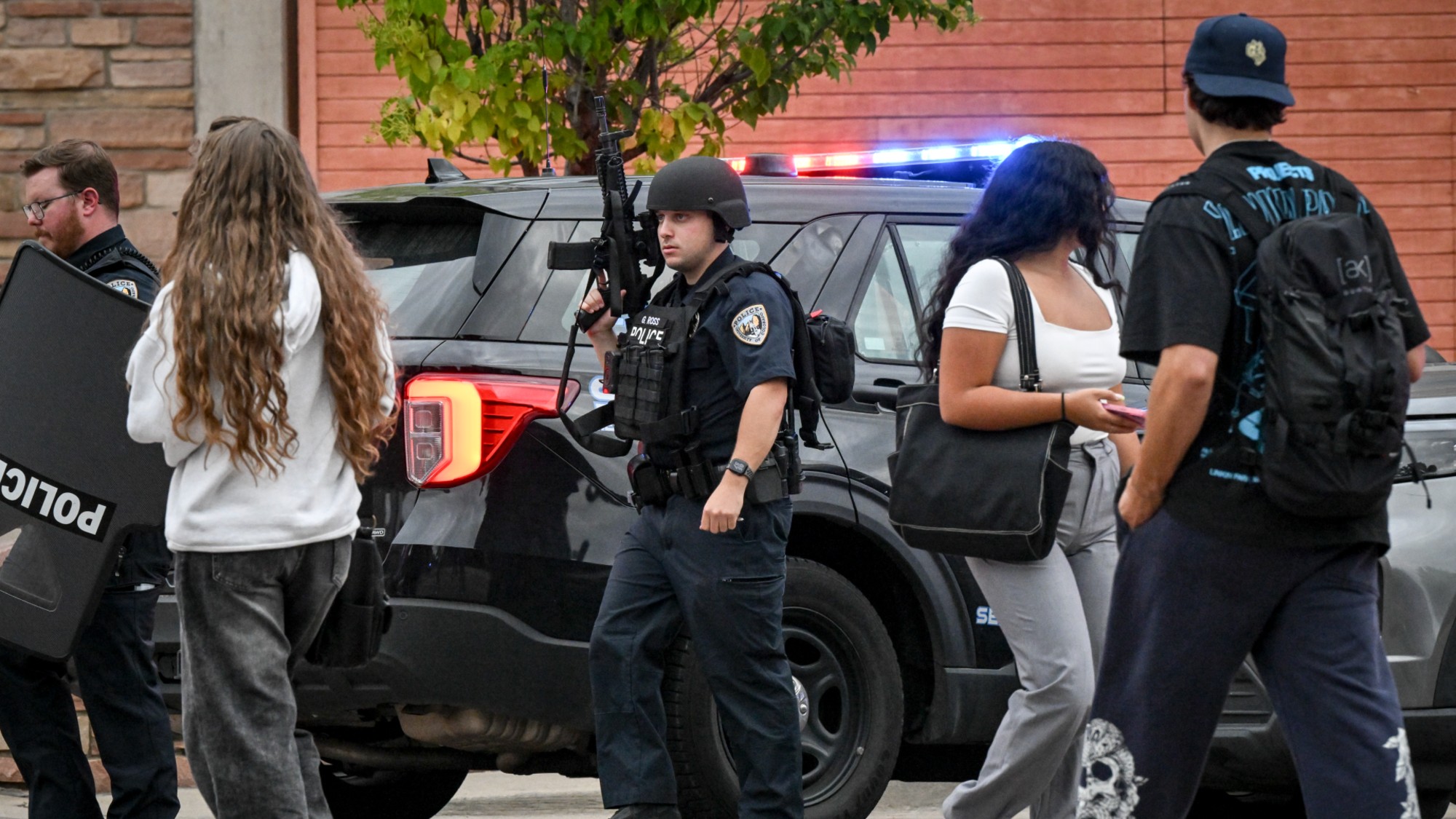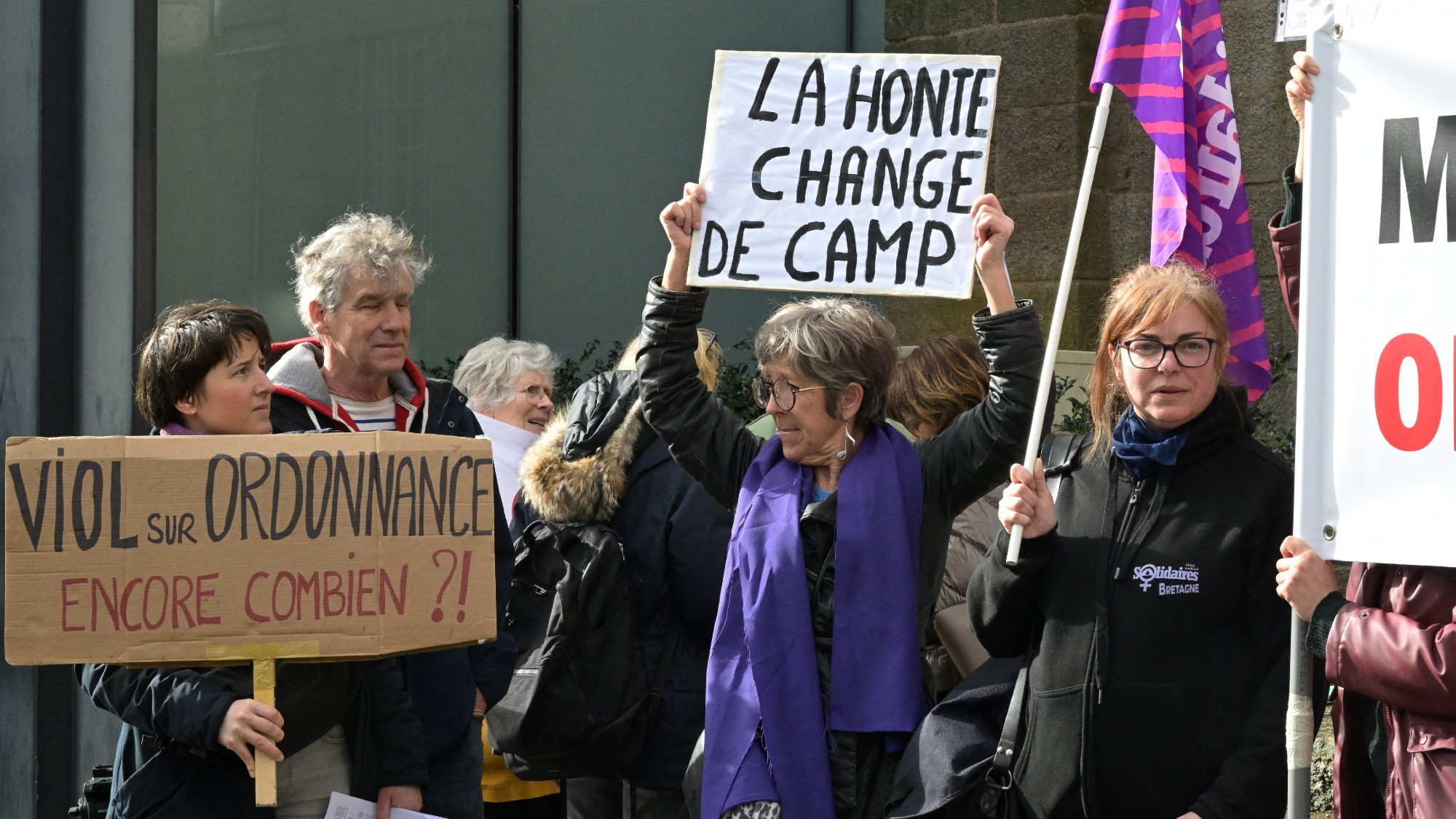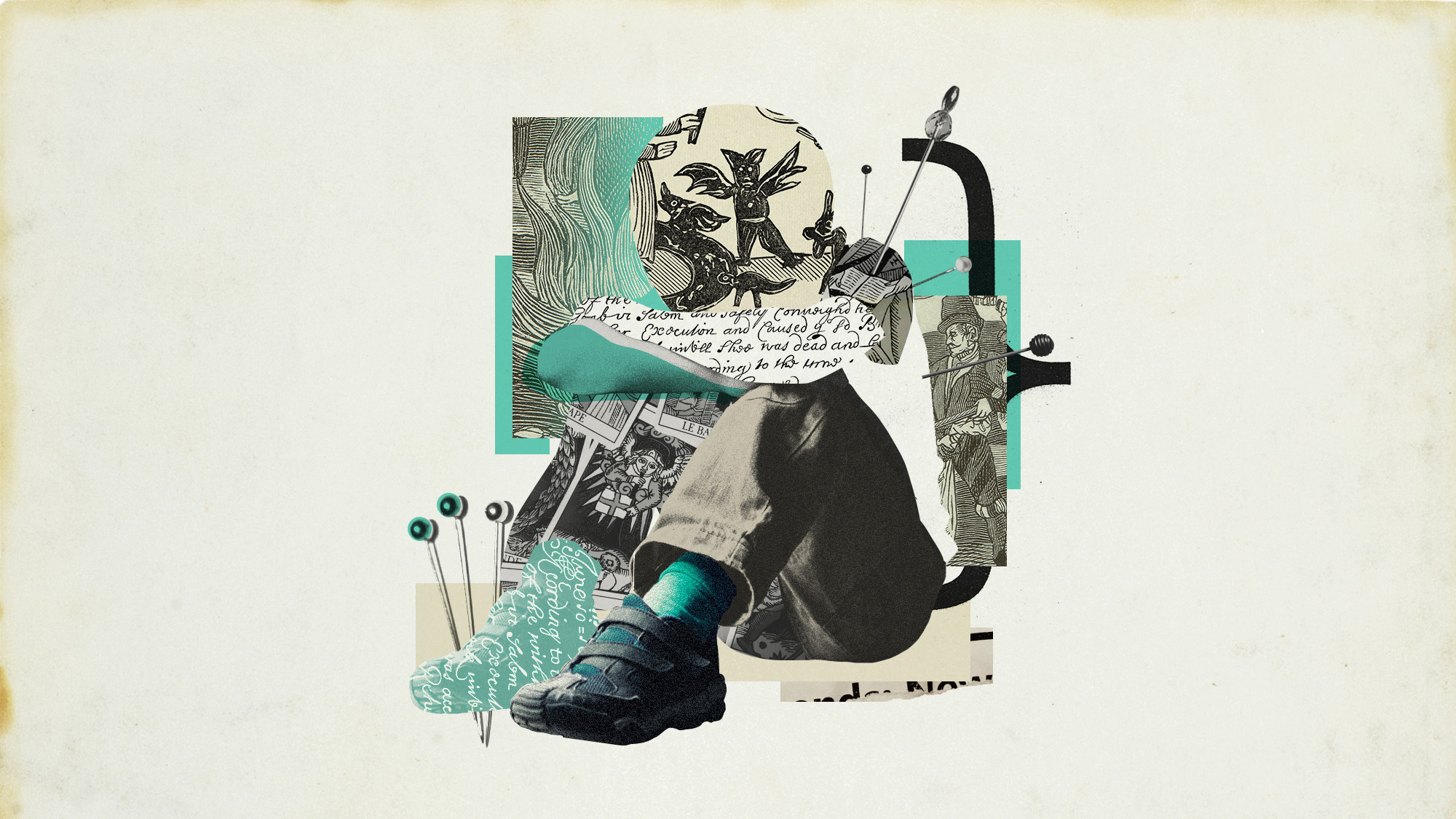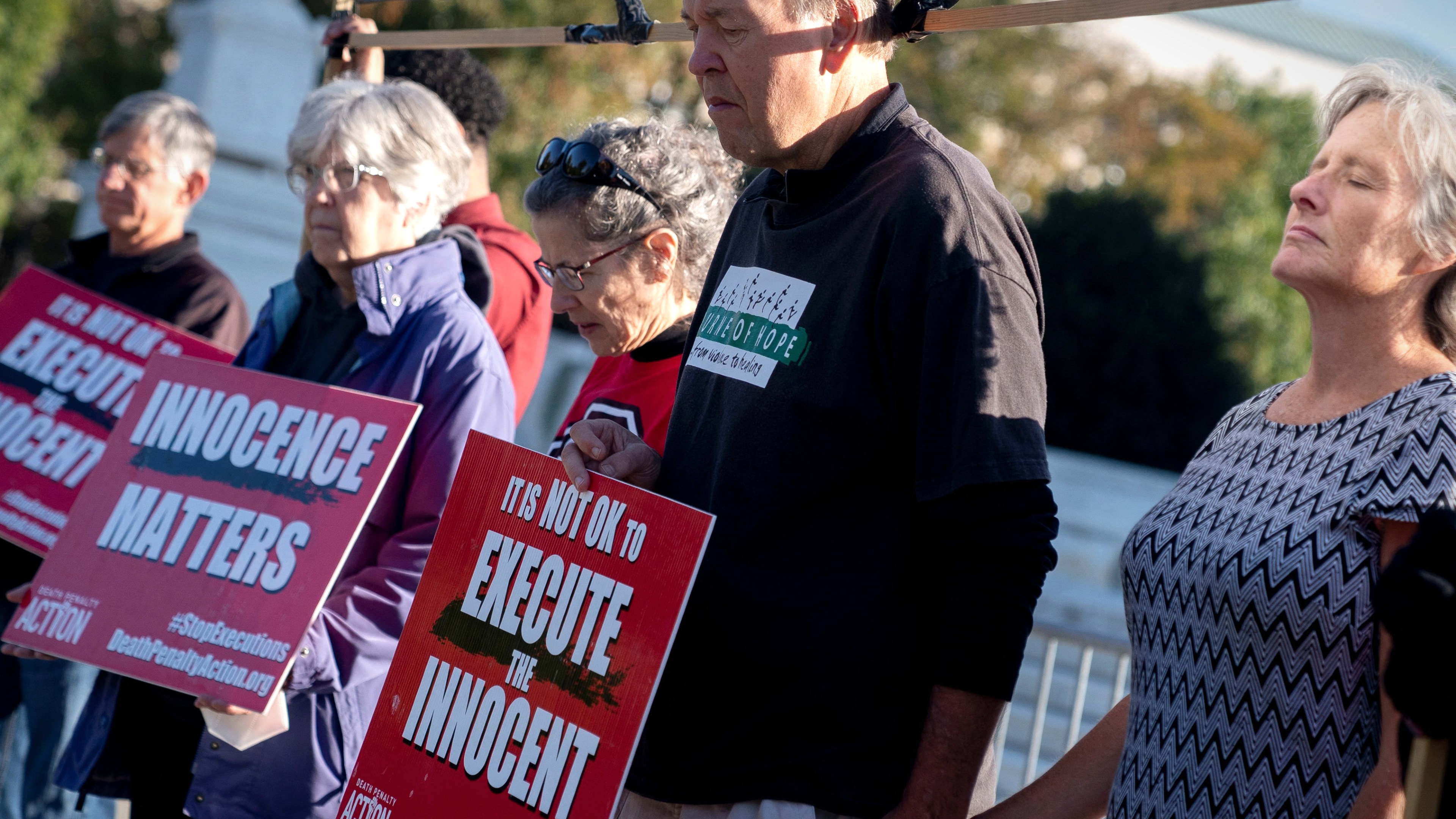The violent turn 'pedophile hunters' have taken in the US
These influencers have taken catching predators to another level


A free daily email with the biggest news stories of the day – and the best features from TheWeek.com
You are now subscribed
Your newsletter sign-up was successful
While it is no longer on the air, Chris Hansen's "Dateline" segment "To Catch a Predator" has inspired a legion of vigilantes over the years. These people will create content posing as minors on dating apps or social media websites to target the people who message them. But according to a new analysis from The New York Times, a growing number have taken it to the extreme and begun violently attacking their targets on livestreams.
Forget arrests, 'we count bodies'
Since 2023, there have been over 170 violent vigilante attacks by so-called pedophile hunters, according to the Times' analysis of hundreds of videos and social media posts. Footage of the hunters shows them "chasing their targets through retail stores, beating people bloody on public streets and shaving the heads of their targets." In more severe cases, "people have been hospitalized with serious injuries."
The Times identified at least 22 individuals and groups who "inflicted violence in the name of pedophile hunting in the last two years," while 40 others made similar content without violence. Most of the violent actions started within the past year. There has been a "notable increase in overt physical violence within these groups," said Emma Hussey, an Australian criminologist who studied American pedophile hunters at Queensland University of Technology, to the Times. Of the 22 violent parties identified, only seven appeared to have been criminally charged for their actions, according to police and court records.
The Week
Escape your echo chamber. Get the facts behind the news, plus analysis from multiple perspectives.

Sign up for The Week's Free Newsletters
From our morning news briefing to a weekly Good News Newsletter, get the best of The Week delivered directly to your inbox.
From our morning news briefing to a weekly Good News Newsletter, get the best of The Week delivered directly to your inbox.
The violent content that comes from these interactions is "popular in online circles that feature crude and hypermasculine material intended to cater to young men," the Times said. It has also been lucrative for hunters, who have gained hundreds of thousands of followers. With the "growth of internet platforms that claim to embrace free speech," the pedophile hunters have been "buoyed by the ability to publish their videos with few restrictions."
In some cases, the hunters have worked with local law enforcement to arrest and prosecute the predators they targeted. But the violent groups are often less concerned about working within the criminal justice system. "We don't count arrests and catches," said Joshua Mundy, a co-founder of popular hunter group Dads Against Predators, in an Instagram post claiming that DAP had caused more suicides among its targets than any other group. "We count bodies."
'People don't get to be Batman'
Despite their growing popularity in some online circles, these groups put innocent bystanders in danger when they attack people and jeopardize criminal cases, law enforcement experts said to the Times. Attacking someone so you can "make money on social media is a crime," said District Attorney Christopher de Barrena-Sarobe of Chester County, Pennsylvania. Real life is "not a comic book — people don't get to be Batman." Police officers are responsible for investigating and enforcing the law because "they have the tools to get the facts right and stand these cases up in a court of law."
Vigilantism is "almost by definition spectacular," as it is a "punishment show," said Laurent Gayer, a senior research professor at the Center for International Studies in Paris, to the Times. Throughout history, vigilantes have relied on theatrics to build an audience of supporters for their controversial actions. Pedophile hunters are "violent entrepreneurs in the most literal kind of way," Gayer said. "They have their little enterprise with its own logo, its own style."
A free daily email with the biggest news stories of the day – and the best features from TheWeek.com
The original predator catcher, Chris Hansen, has continued to catch predators on his streaming network, but he has doubts about this new class of copycats. In these vigilante cases, it is "true that some bad guys are exposed," but because of "their methodology and how they often make such a show of it, they are tainted cases," he said to the New York Post. They mainly "act clownish or they assault people," and "regardless of what they might say, their cases rarely get prosecuted."
Theara Coleman has worked as a staff writer at The Week since September 2022. She frequently writes about technology, education, literature and general news. She was previously a contributing writer and assistant editor at Honeysuckle Magazine, where she covered racial politics and cannabis industry news.
-
 Political cartoons for February 16
Political cartoons for February 16Cartoons Monday’s political cartoons include President's Day, a valentine from the Epstein files, and more
-
 Regent Hong Kong: a tranquil haven with a prime waterfront spot
Regent Hong Kong: a tranquil haven with a prime waterfront spotThe Week Recommends The trendy hotel recently underwent an extensive two-year revamp
-
 The problem with diagnosing profound autism
The problem with diagnosing profound autismThe Explainer Experts are reconsidering the idea of autism as a spectrum, which could impact diagnoses and policy making for the condition
-
 Colleges are being overwhelmed with active shooter hoaxes
Colleges are being overwhelmed with active shooter hoaxesIn the Spotlight More than a dozen colleges have reported active shooter prank calls
-
 Will the new grooming gangs inquiry achieve anything?
Will the new grooming gangs inquiry achieve anything?Today's Big Question Critics point to a previous inquiry's still-unfulfilled list of recommendations
-
 France's 'reckoning' over largest-ever child sex abuse trial
France's 'reckoning' over largest-ever child sex abuse trialThe Explainer Joël Le Scouarnec case is latest in a series of high-profile scandals to have prompted 'deep soul searching'
-
 The rise of child 'witchcraft' cases in the UK
The rise of child 'witchcraft' cases in the UKUnder the Radar Faith-based child abuse, centred on accusations of witchcraft and demonic possessions, has harmed thousands of children
-
 The missed opportunities to save Sara Sharif
The missed opportunities to save Sara SharifTalking Point After each horrific child abuse case, we hear that lessons will be learnt. What is still missing?
-
 Haitian gangs massacre hundreds accused of 'witchcraft'
Haitian gangs massacre hundreds accused of 'witchcraft'Under the Radar Vodou practices blamed for gang leader's son's illness, as elderly are hacked to death in Port au Prince
-
 The safety of Israeli nationals abroad
The safety of Israeli nationals abroadIn the Spotlight Israel's president described violent riots and attacks on Israelis after Ajax-Maccabi Tel Aviv match as an 'antisemitic pogrom'
-
 Texas set to execute dad in disputed 'shaken baby' case
Texas set to execute dad in disputed 'shaken baby' caseSpeed Read Robert Roberson's hotly contested execution would be the first ever tied to shaken baby syndrome
